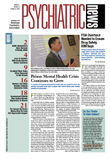An intriguing new analysis shows that family ties hold strong between parent and child, especially when it comes to filling prescriptions for stimulant medications used to treat attention-deficit/hyperactivity disorder (ADHD).
According to pharmacy benefit manager Medco Health Solutions Inc., parents of children on an ADHD medication are nearly 10 times more likely to take an ADHD drug themselves than those without a child on the medication. An analysis by Medco reviewed prescription claims of more than 107,000 children aged 5 to 19 and their parents over 12 months in 2005. Medco is the nation's leading pharmacy benefits manager, with 2005 total net revenues of nearly $38 billion.
Like previous studies showing the increasing use of these medications by adults, the study found that in families with both a parent and a child who started to take an ADHD medication during 2005, 41 percent of the time it was the parent filling the prescription first, followed by the parent's filling the prescription for the child.
The study also found a striking correlation between mother and child: in households where both a parent and child began treatment for the first time in 2005, nearly 60 percent of the time it was mother and child, rather than father and child. The average age of the parent beginning ADHD medication was 43 years, while the average age of children beginning treatment was 13 years.
Further findings showed that in families where at least one parent and one child were concurrently taking an ADHD medication, the likelihood of a second child taking the medication was double that of families where the parent was not on the drug.
“Heredity has long been suggested as a cause of ADHD, but this is the first study of significant magnitude to confirm the theory,” said Robert Epstein, M.D., Medco's chief medical officer. “These results establish a clear link between parents and children in the use of ADHD medications and, most surprisingly, between mother and child.”
Medco also reviewed the use of ADHD medication among twins. An analysis of the data on nearly 17,500 twin sets found that regardless of the gender of the twins, when one twin was taking an ADHD medication, there was a 24 percent chance that the other twin was also being treated with an ADHD drug. This was nearly 2.5 times the probability of nontwin siblings taking the medications. In households where one twin and a parent were on an ADHD drug, there was a 37 percent likelihood that the other twin would be on the medication as well.
“Many [psychiatrists] were originally taught that ADHD usually resolved by late adolescence. Today, we know that at least half of the children and adolescents with ADHD continue to have difficulties well into adulthood,” said David Fassler, M.D., a clinical professor of psychiatry at the University of Vermont College of Medicine and an APA trustee.
“Parents of children who have had a positive response to treatment, including treatment with medication, would be more likely to consider such treatment for themselves or for other children with ADHD,” added Fassler, who specializes in child and adolescent psychiatry. “The converse is also true: parents who have received treatment for ADHD are more likely to recognize the early warning signs in their children.”▪
